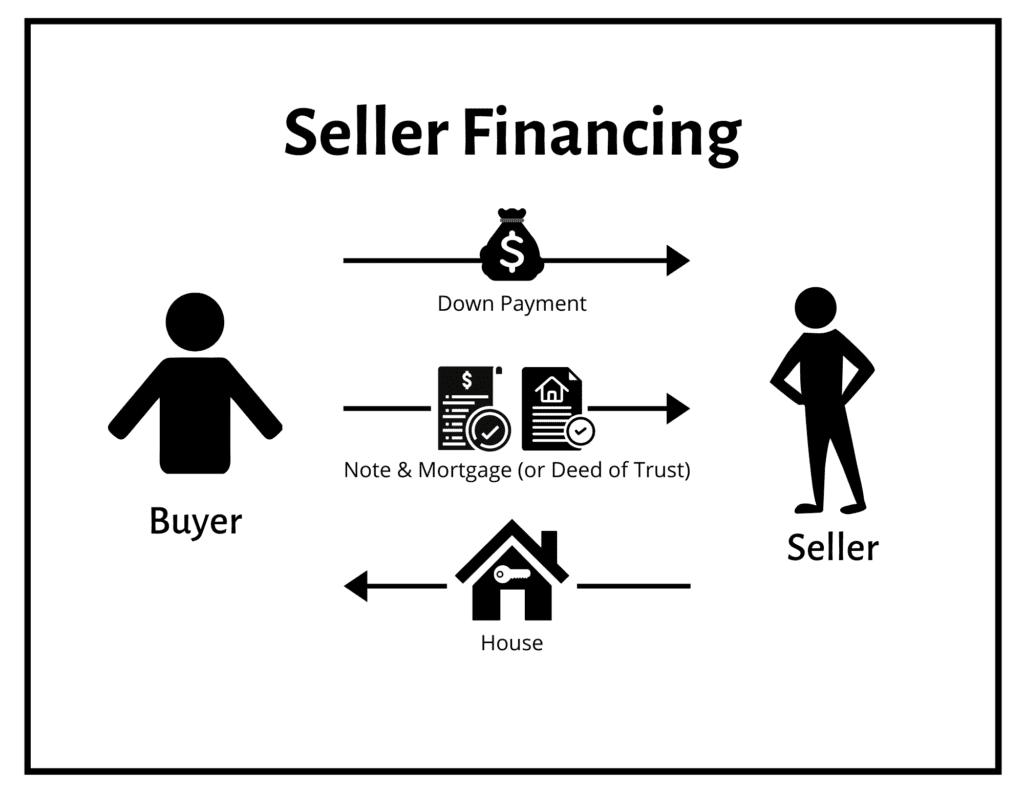Seller financing is an alternative way of buying a business where the seller provides part or all of the financing to the buyer. It’s a flexible option that can help entrepreneurs acquire businesses without needing to secure a loan from a traditional lender. Instead, the buyer agrees to repay the seller over time, typically with interest. This form of financing is growing in popularity, especially in smaller business acquisitions. Understanding how it works, its benefits, and potential risks can help both buyers and sellers make more informed decisions.
How Does Seller Financing Work?

In seller financing, the seller takes on the role of the lender. Instead of receiving the full amount upfront, the seller and buyer agree on a repayment schedule, which often includes monthly payments. The buyer typically pays a portion of the price as a down payment, and the rest is financed by the seller. Interest is charged on the unpaid balance. Both parties sign a promissory note that outlines the terms of repayment, including the interest rate and the payment schedule.
- Seller provides financing to the buyer
- Buyer makes regular payments to the seller
- Interest is charged on the remaining balance
- A promissory note details the payment terms
Advantages of Seller Financing for the Buyer

One of the main benefits for buyers is that seller financing can make it easier to purchase a business without securing a bank loan. This financing method can be faster and more flexible compared to traditional loans, and the buyer may not need to meet stringent credit requirements. Additionally, the terms of repayment can often be negotiated, making it a more adaptable option for buyers.
- Easier approval compared to traditional loans
- Flexible payment terms
- Faster transaction process
- Lower credit requirements
Advantages of Seller Financing for the Seller

For sellers, offering financing can attract more potential buyers, particularly those who may not qualify for a traditional loan. It also allows sellers to negotiate a higher sale price since they are providing financing. Additionally, sellers can benefit from interest income over time. This method also provides sellers with a steady stream of income post-sale, which can be beneficial for retirement or other financial goals.
- Attracts more buyers
- Opportunity to negotiate a higher sale price
- Interest income over time
- Steady post-sale income
Potential Risks for Buyers in Seller Financing

While seller financing can be beneficial, it also comes with risks. Buyers may face higher interest rates compared to traditional loans. If the business underperforms, the buyer could struggle to make payments. Additionally, because the seller retains a lien on the business until the loan is paid in full, buyers could lose the business if they default on payments.
- Higher interest rates
- Risk of business underperformance
- Seller retains lien until full payment
- Possibility of losing the business upon default
Potential Risks for Sellers in Seller Financing

For sellers, the main risk is that the buyer may default on the loan. This could result in the seller taking back ownership of the business, which can be a hassle, especially if the business is struggling. Additionally, sellers must wait to receive full payment and might need to spend time and resources managing the loan.
- Buyer default risk
- Hassle of repossession
- Delayed full payment
- Ongoing loan management responsibilities
Common Terms and Conditions in Seller Financing Agreements

Seller financing agreements usually include several key terms, such as the down payment amount, interest rate, repayment schedule, and collateral. The promissory note also outlines what happens if the buyer defaults on payments, which may include repossession of the business or other legal actions. It’s essential for both parties to fully understand these terms before entering into a seller financing agreement.
- Down payment amount
- Interest rate and repayment schedule
- Collateral (often the business itself)
- Default consequences
Is Seller Financing Right for You?

Determining if seller financing is the right choice depends on several factors, including the buyer’s financial situation, the seller’s willingness to provide financing, and the business’s financial health. For buyers, it’s essential to assess whether the business’s cash flow can support the repayment terms. Sellers should consider the risk involved and whether they’re willing to finance part of the sale.
- Assess financial health of the business
- Consider cash flow to cover payments
- Evaluate seller’s willingness to provide financing
- Understand the risks for both parties
Examples of Seller Financing in Action

Let’s say a business is being sold for $500,000. The buyer may provide a $100,000 down payment and finance the remaining $400,000 through seller financing. The repayment terms might include a 5% interest rate, with monthly payments spread over five years. The buyer benefits by not needing a bank loan, and the seller enjoys interest income over the loan’s duration.
- Business sale price: $500,000
- Down payment: $100,000
- Seller finances $400,000 at 5% interest
- Monthly payments for 5 years
Conclusion
Seller financing offers a flexible alternative for buyers and sellers when acquiring or selling a business. For buyers, it can open the door to opportunities without needing a traditional loan, while sellers can benefit from a larger pool of potential buyers and interest income. However, both parties need to carefully assess the terms, risks, and benefits before entering into a seller financing agreement. With the right structure in place, seller financing can be a win-win for all involved.
FAQ
What is seller financing for a business?
Seller financing is a method where the seller provides a loan to the buyer to help them purchase the business, with the buyer repaying the loan over time.
How much down payment is required in seller financing?
The down payment typically ranges between 10% and 50% of the total sale price, depending on the agreement between the buyer and seller.
What happens if the buyer defaults on the loan?
If the buyer defaults, the seller may take back ownership of the business or pursue other legal actions as outlined in the promissory note.
Are interest rates higher with seller financing?
Interest rates in seller financing can be higher than those offered by traditional lenders, but this depends on the agreement between the buyer and seller.
Can a buyer still get seller financing with poor credit?
Yes, seller financing is often more flexible than traditional bank loans, making it easier for buyers with poor credit to purchase a business.
